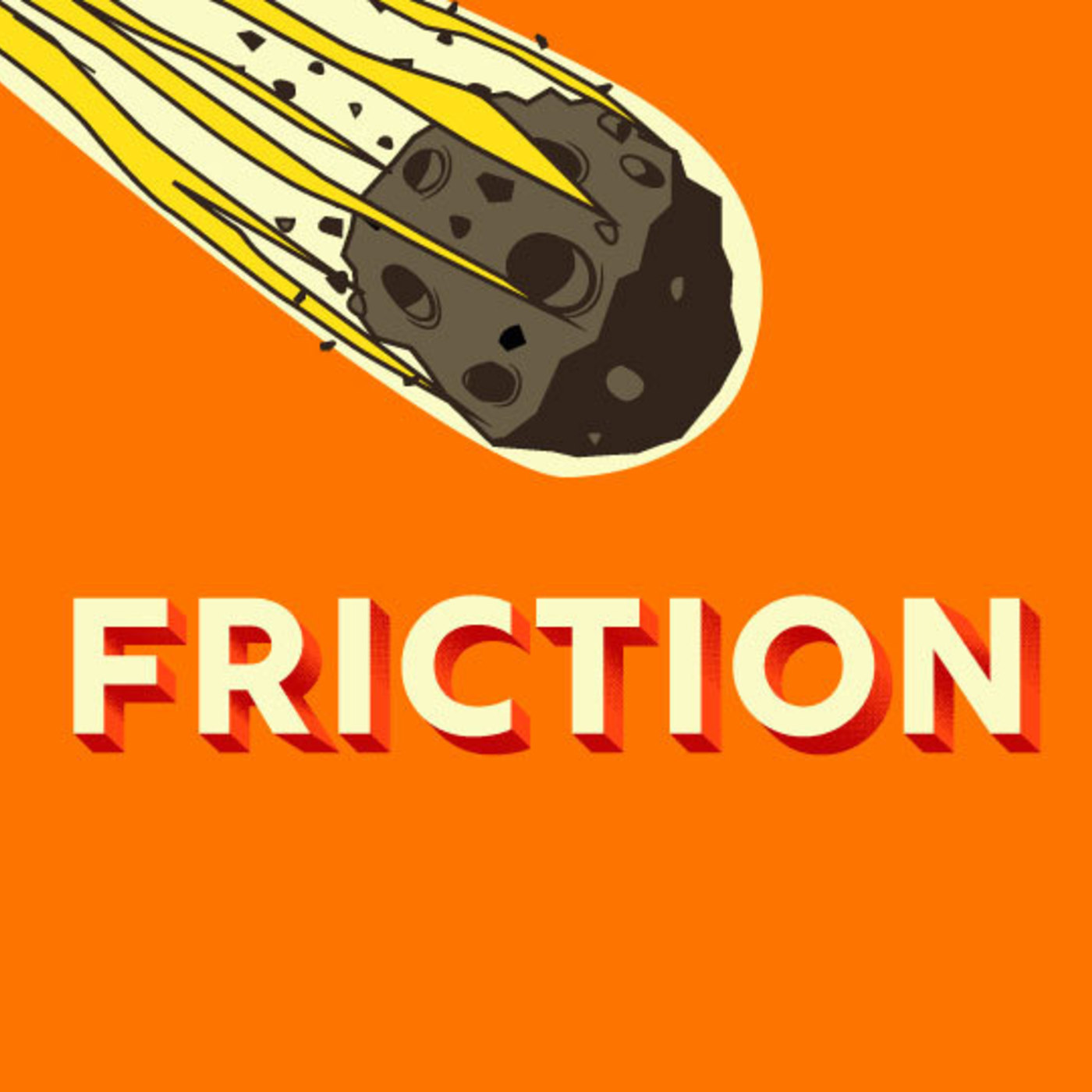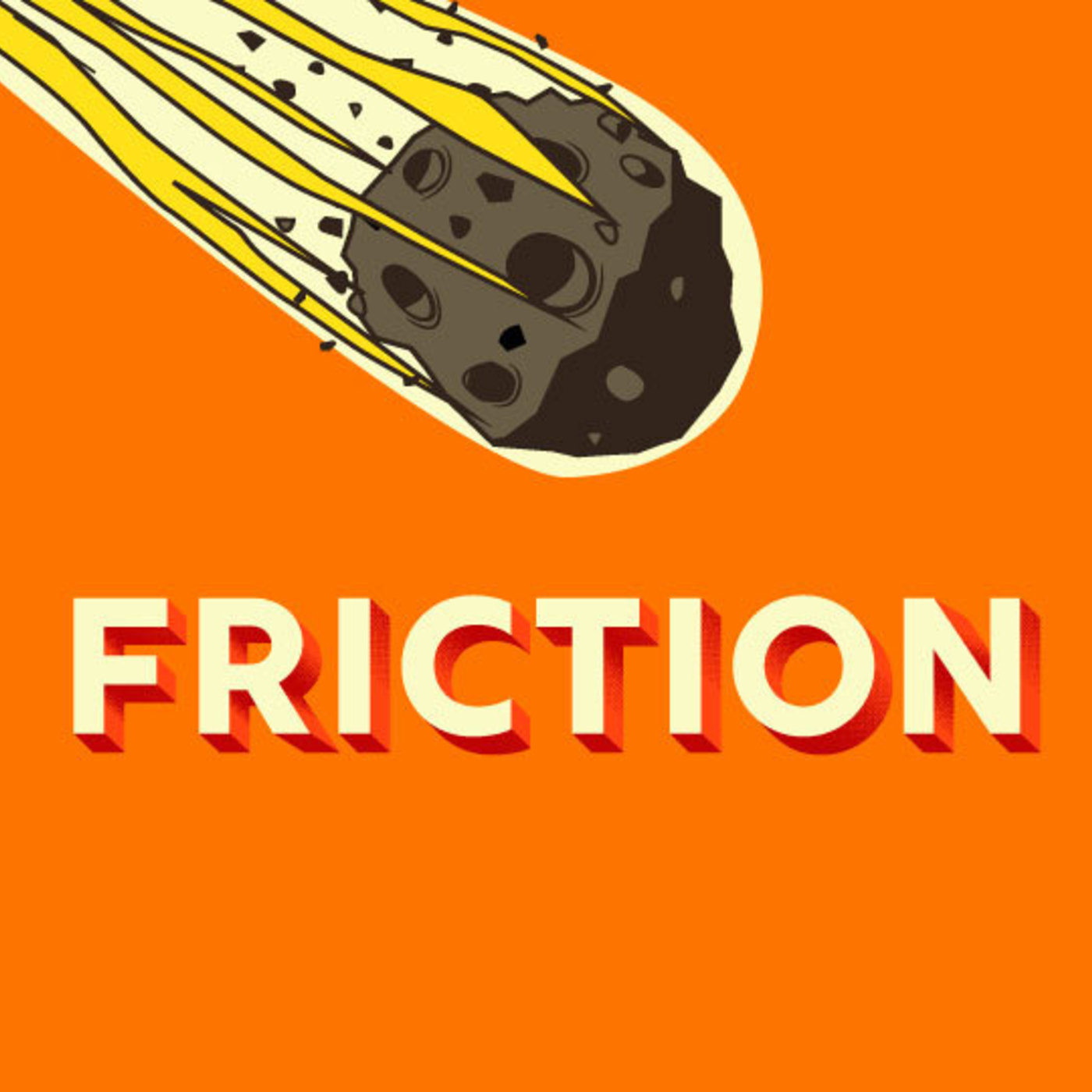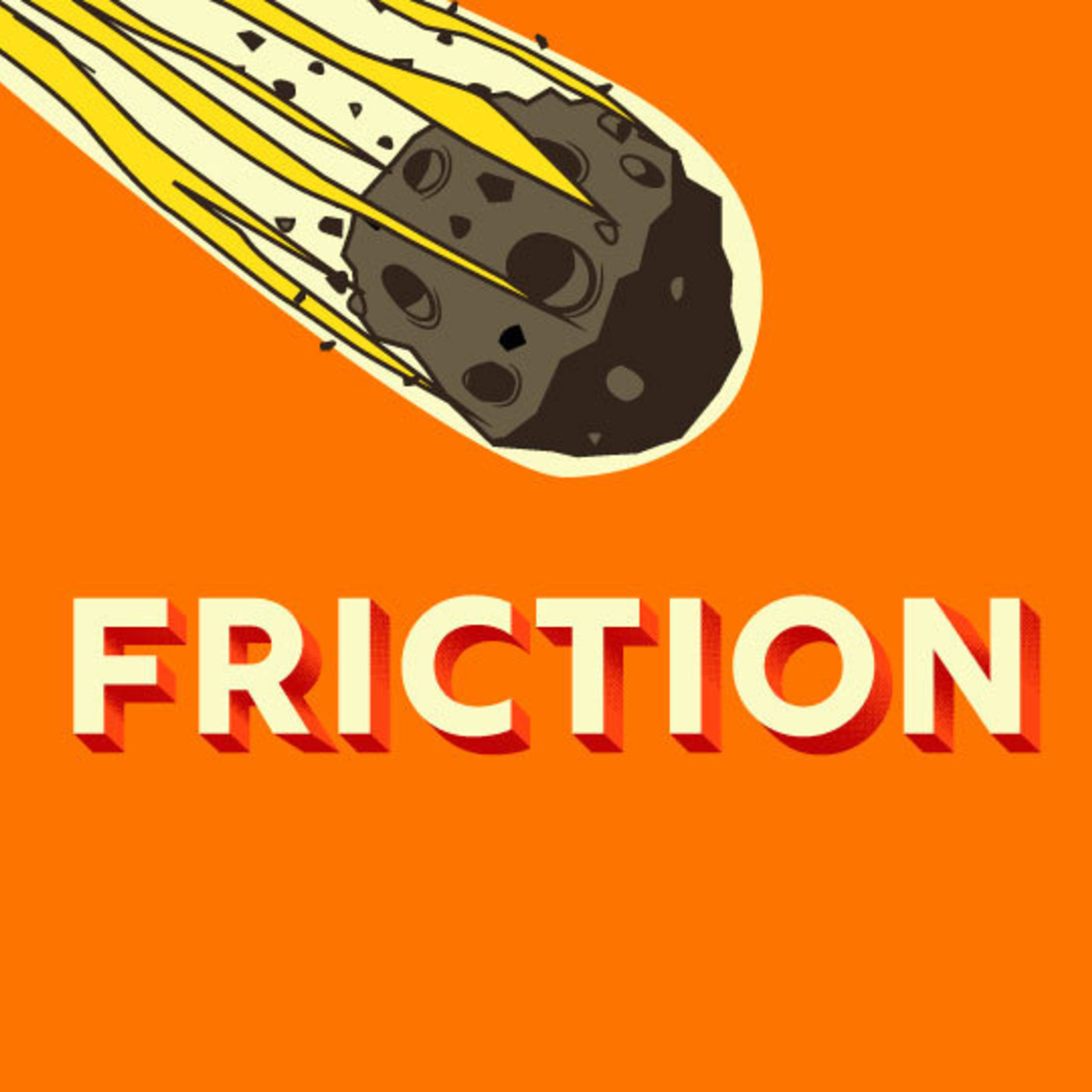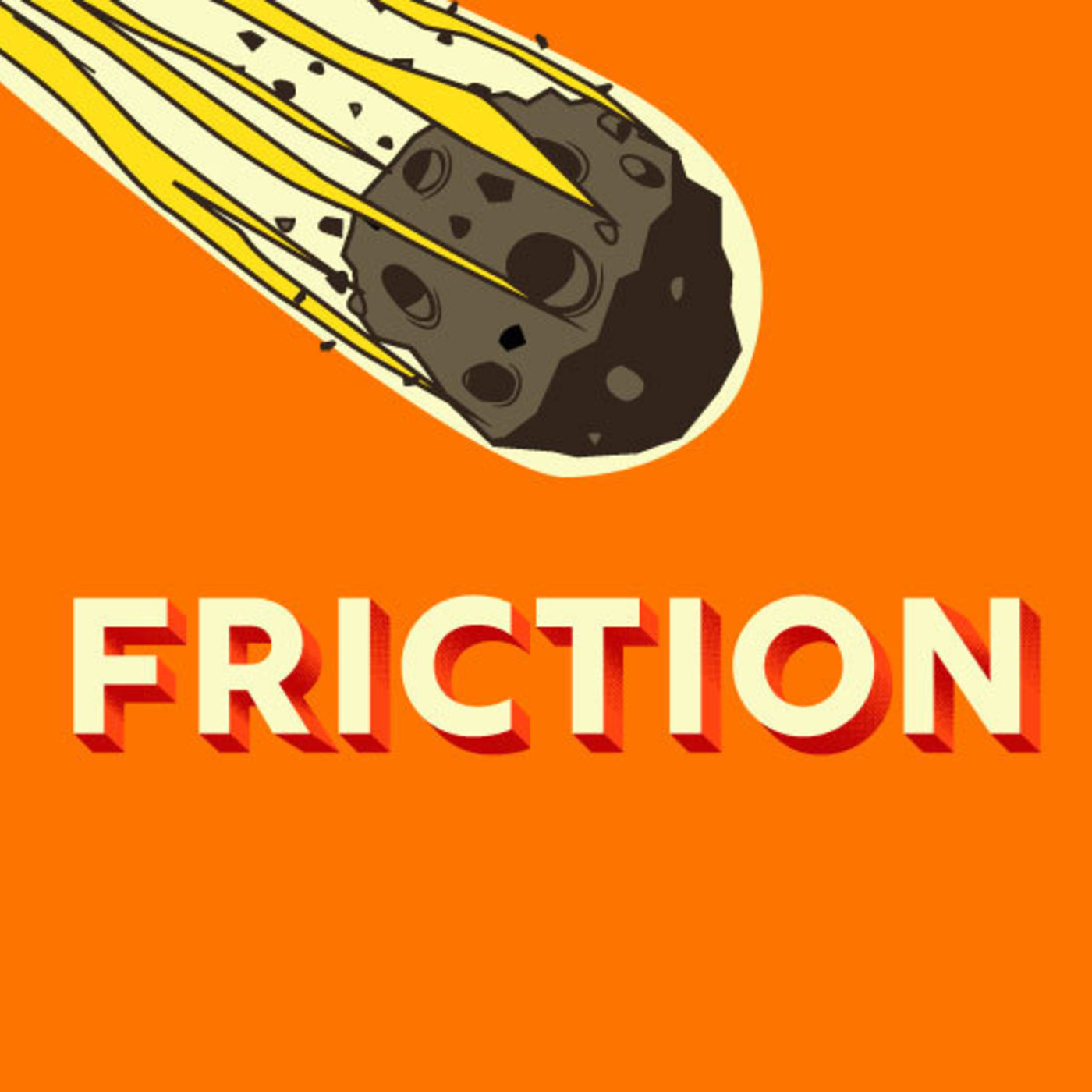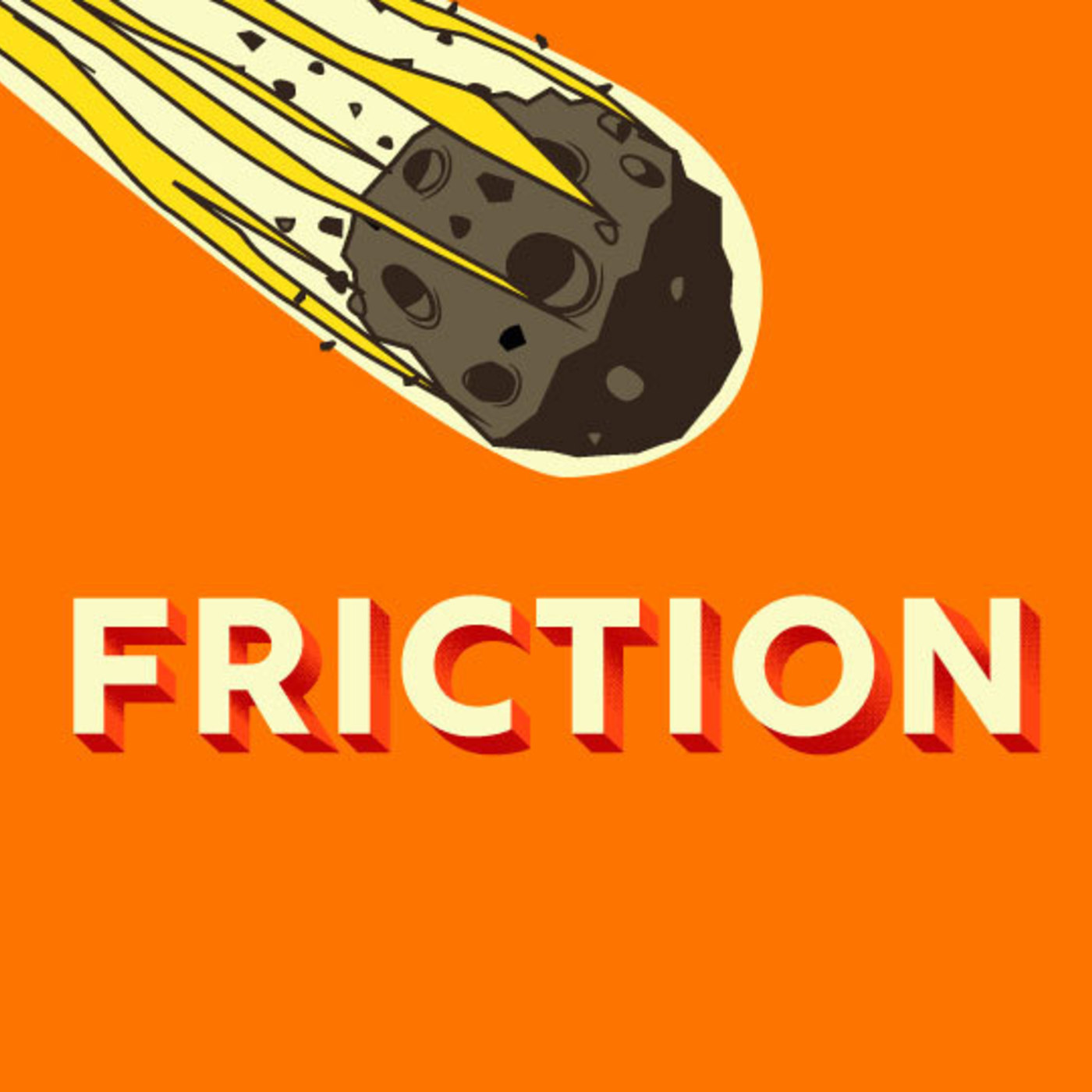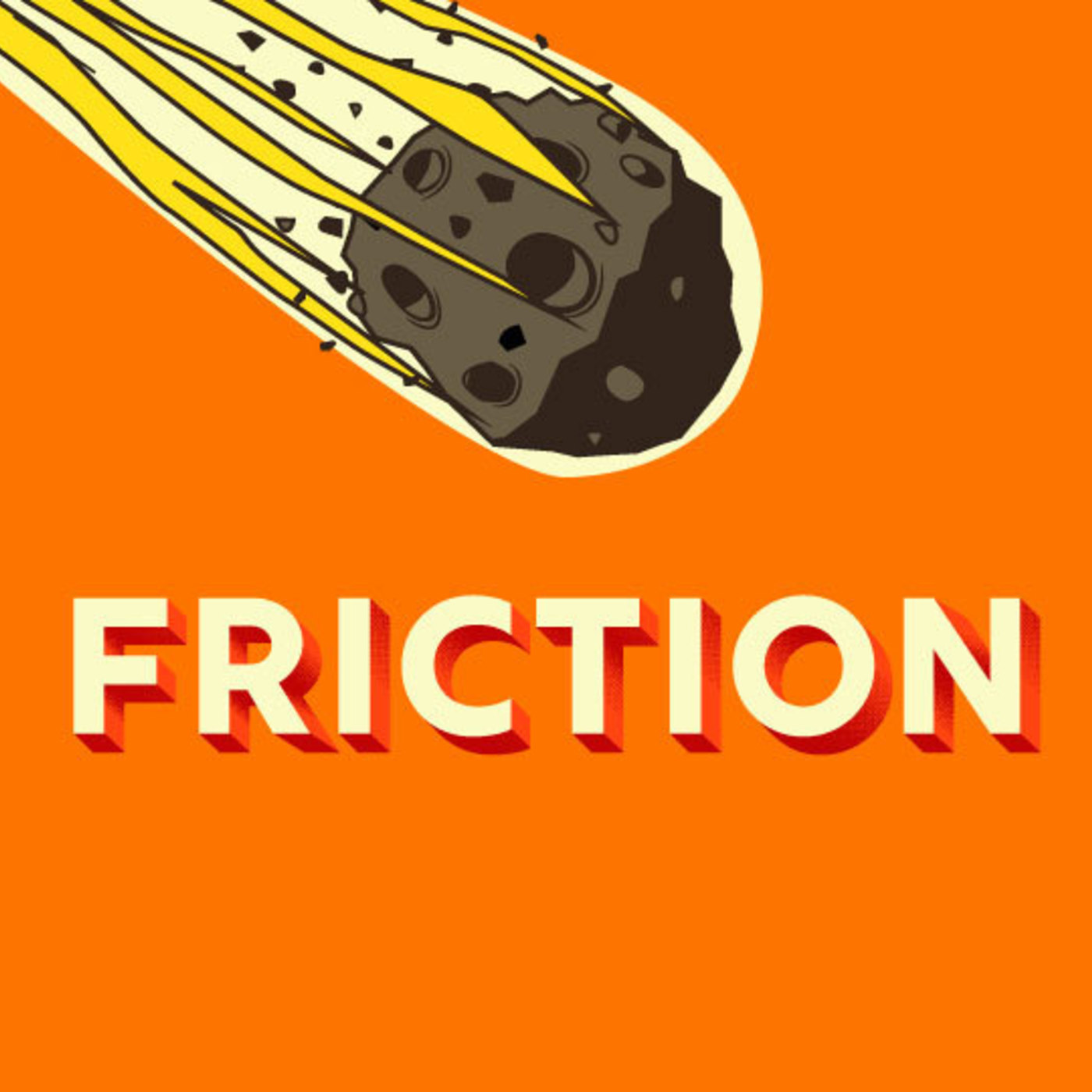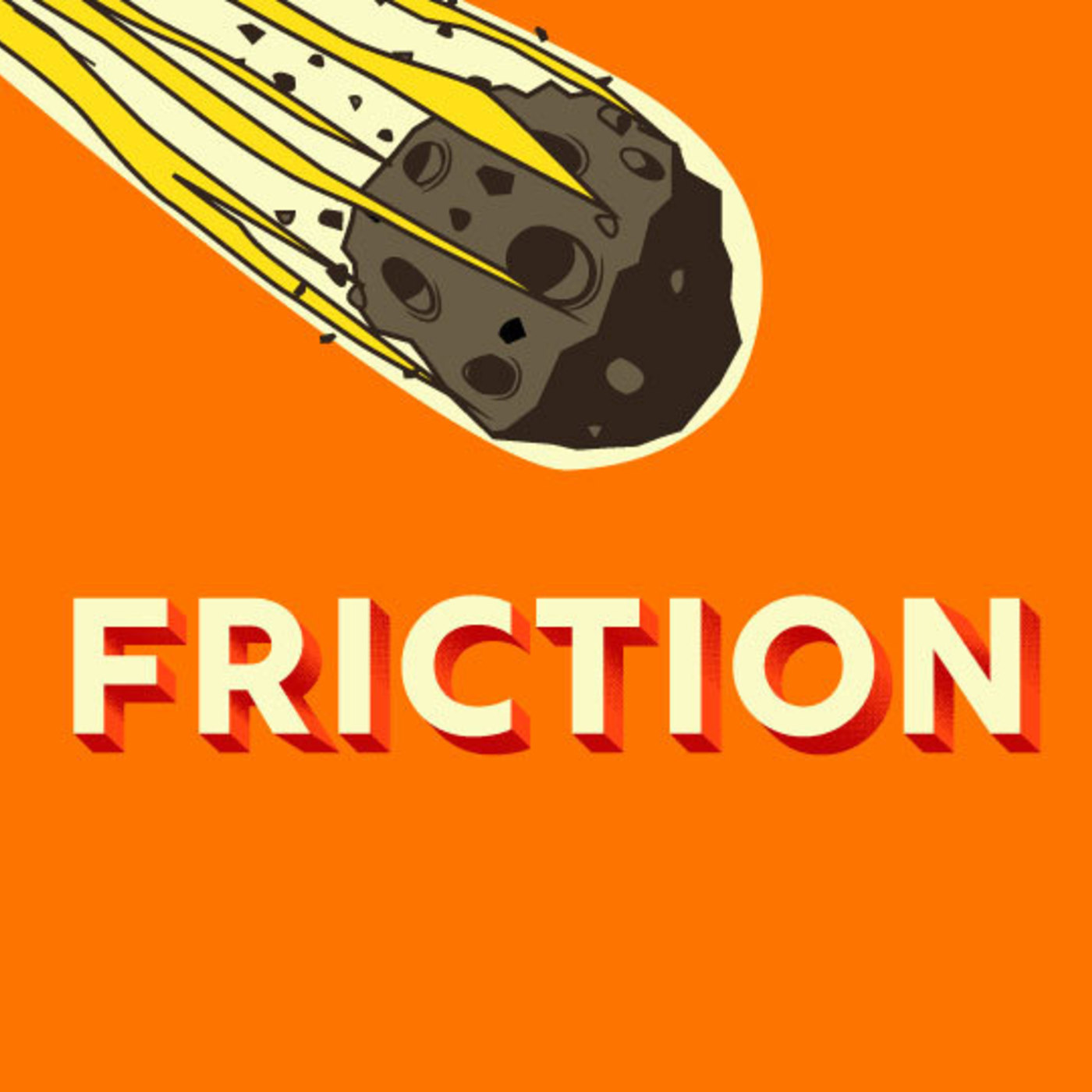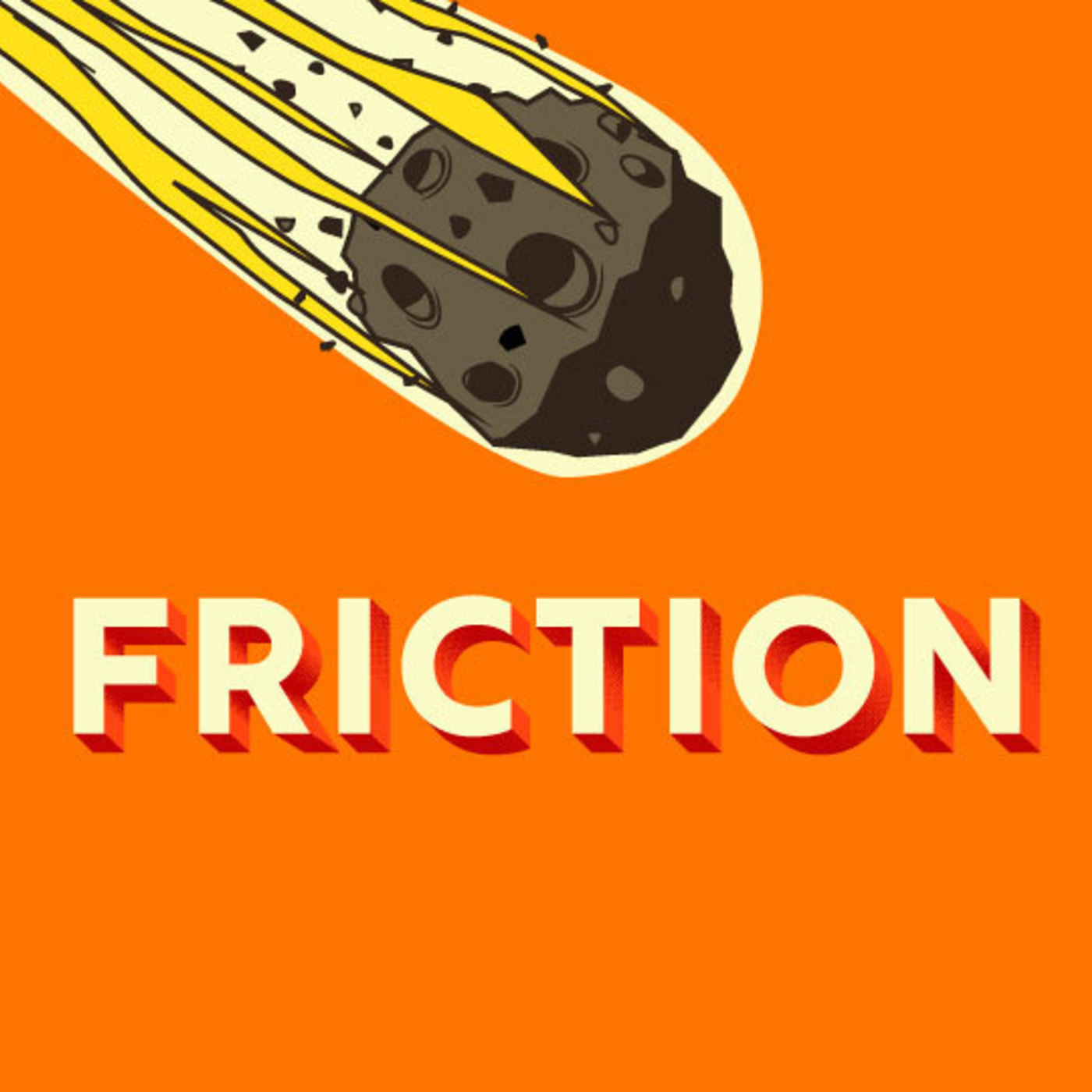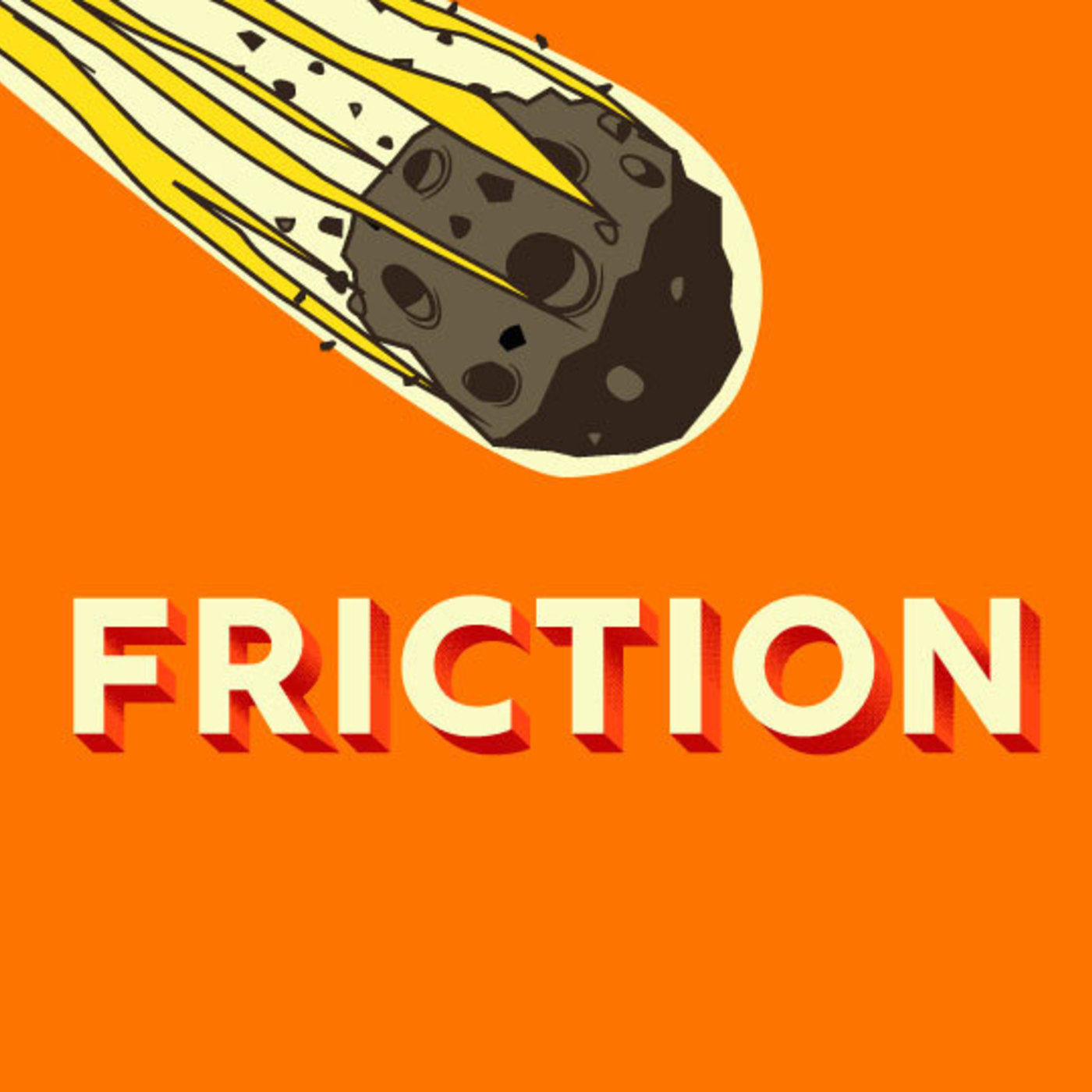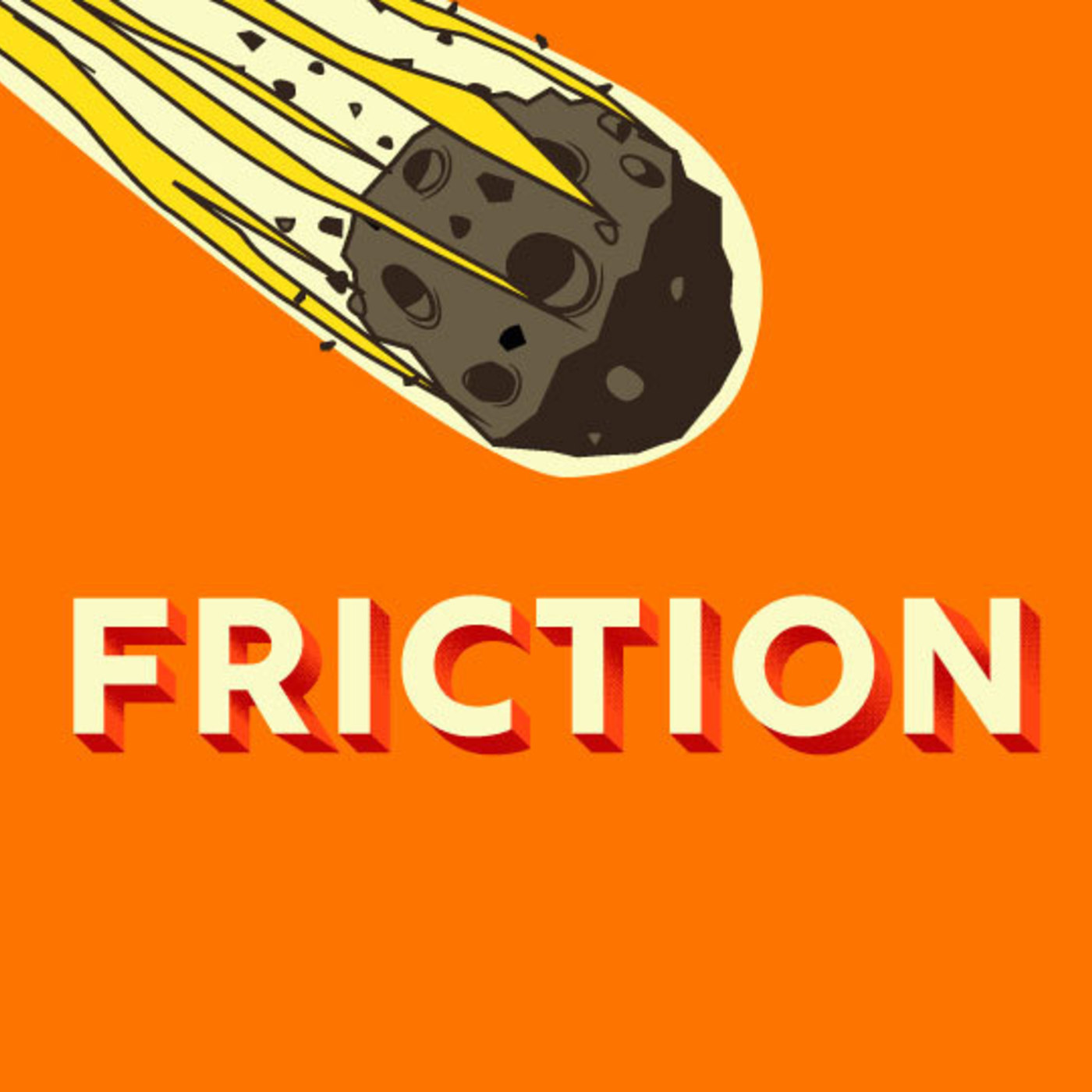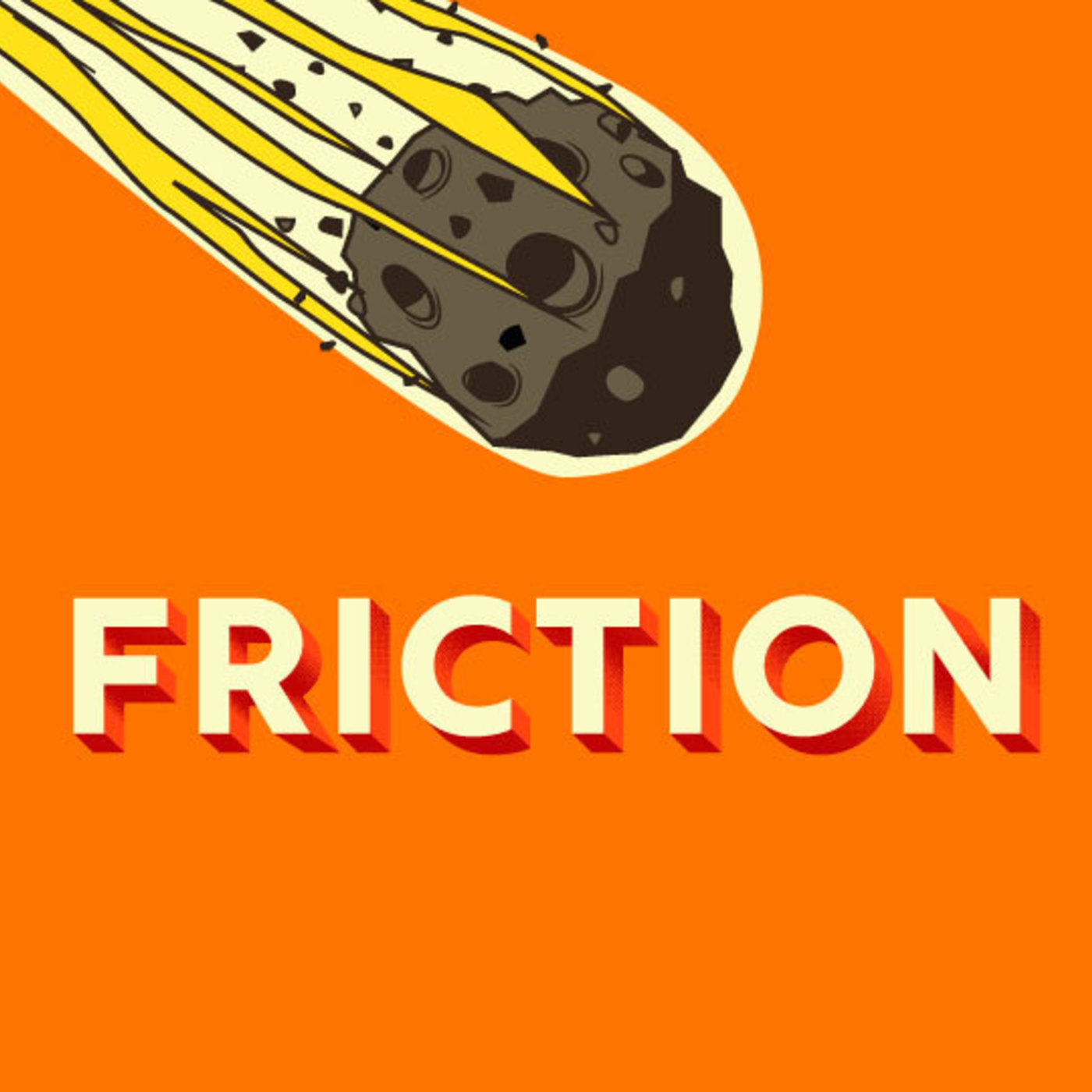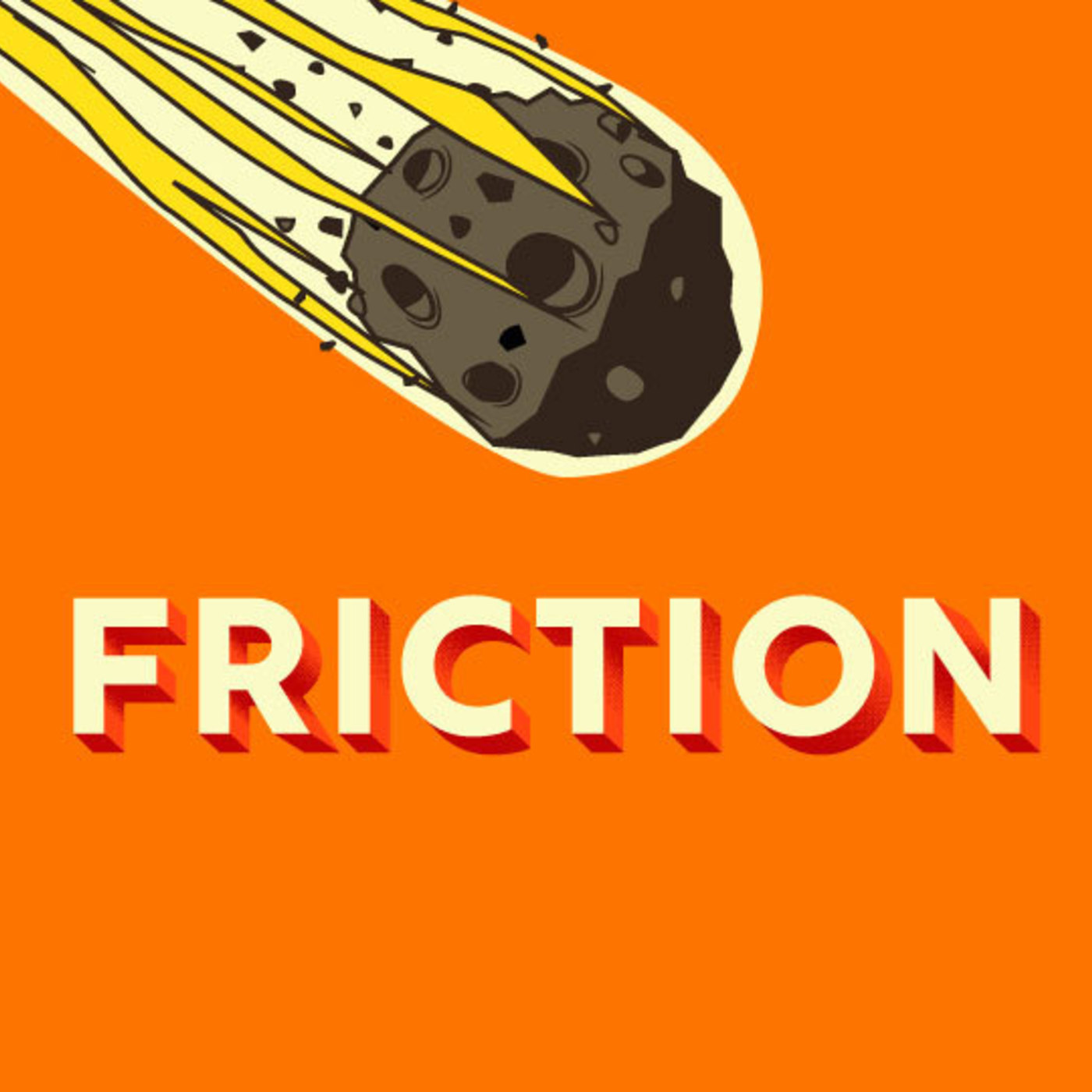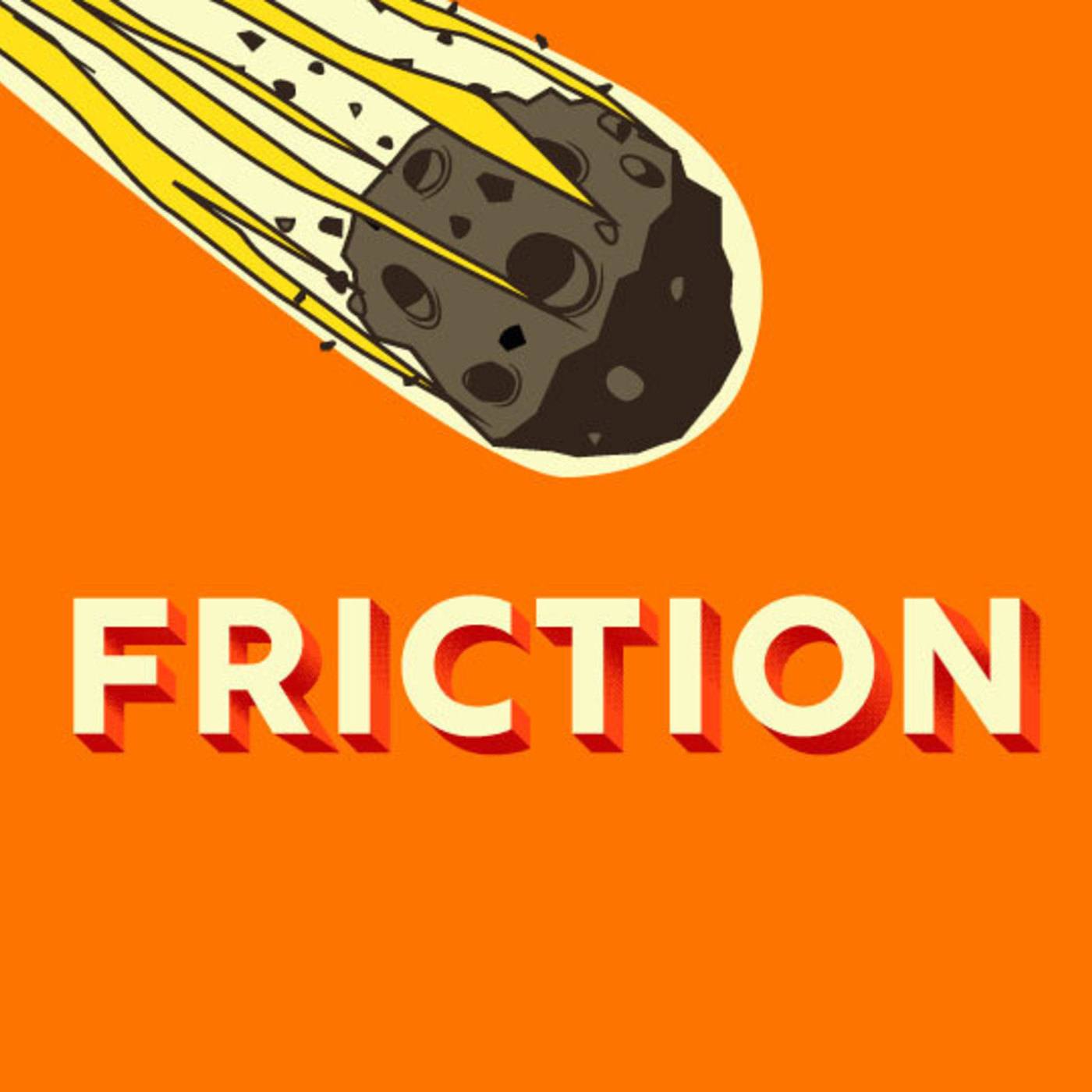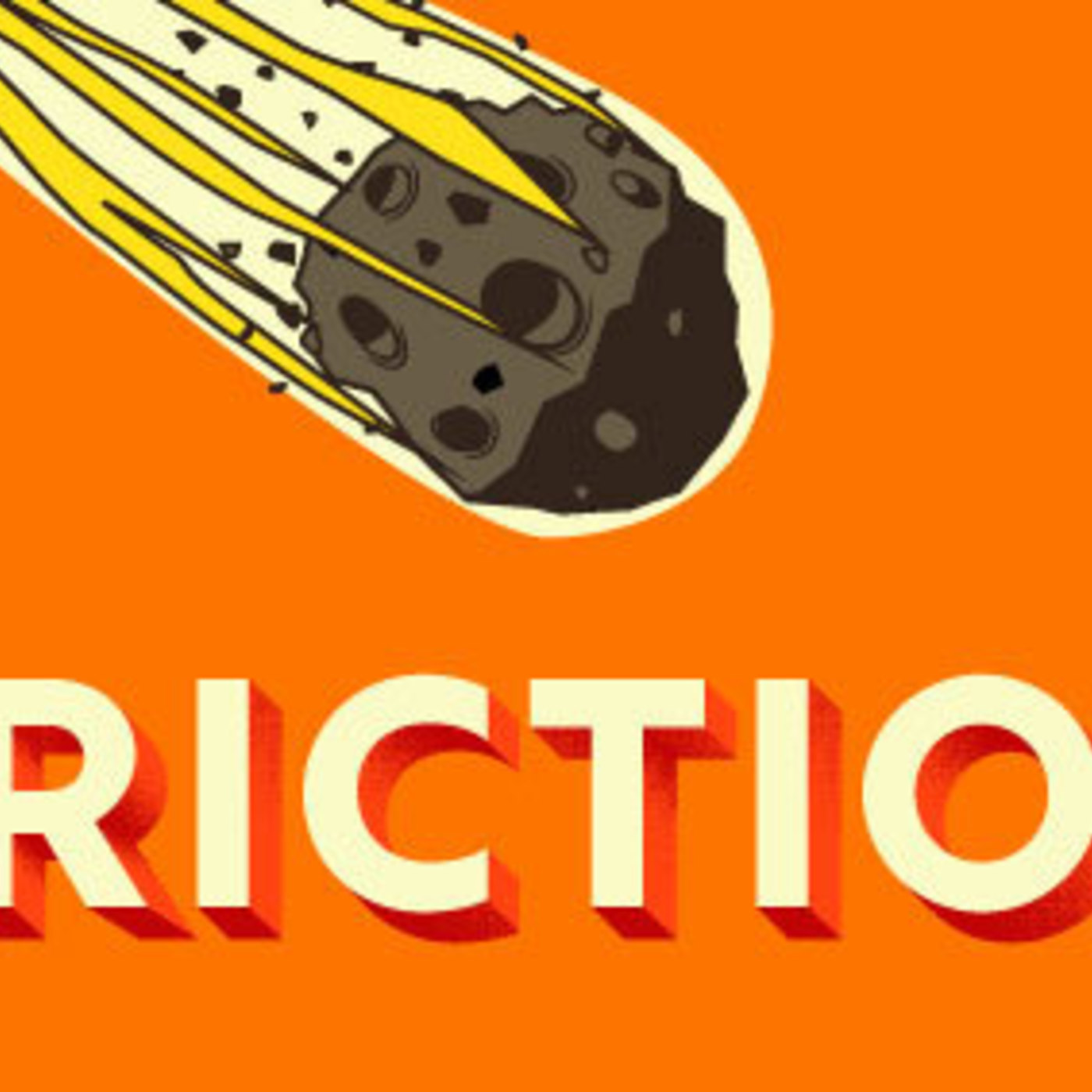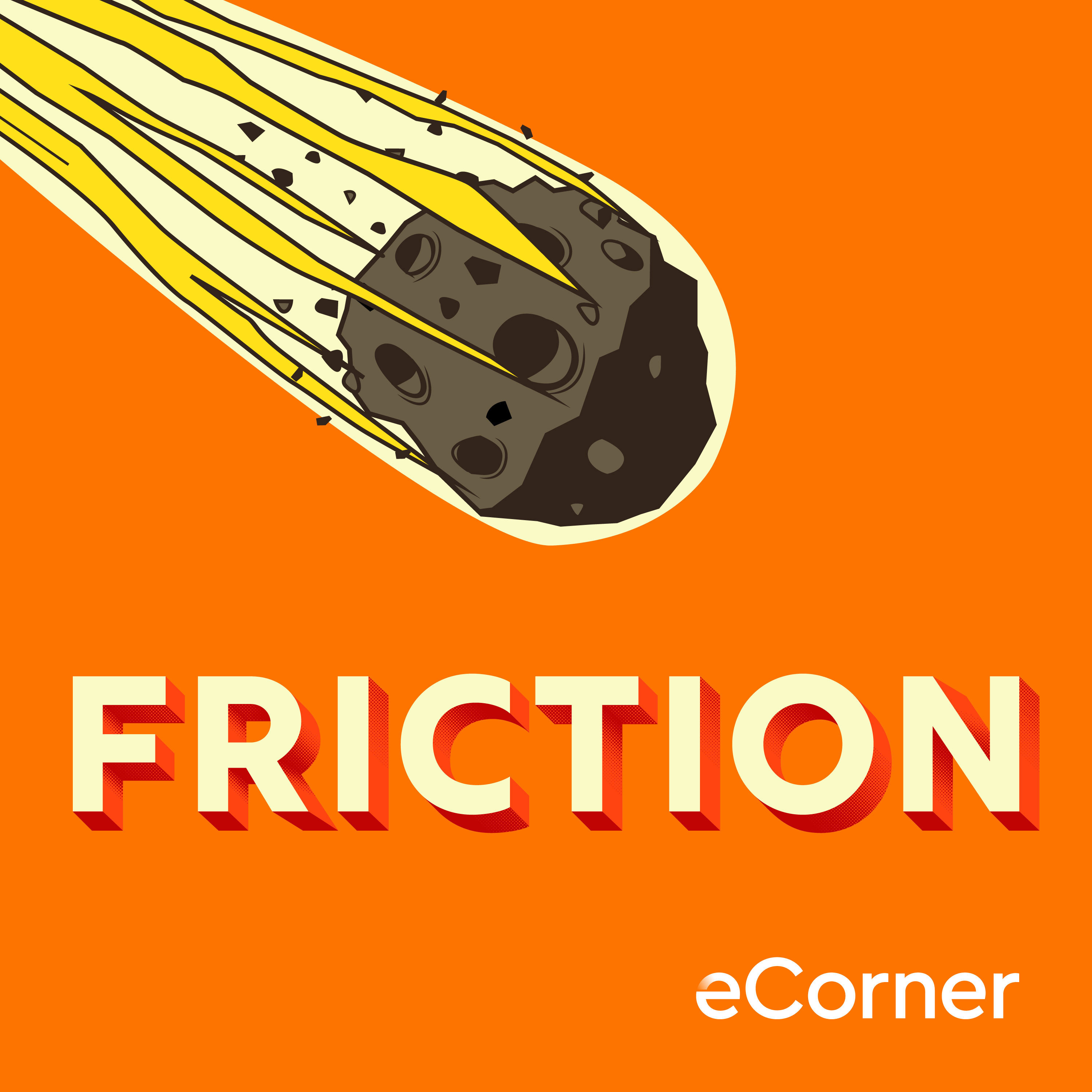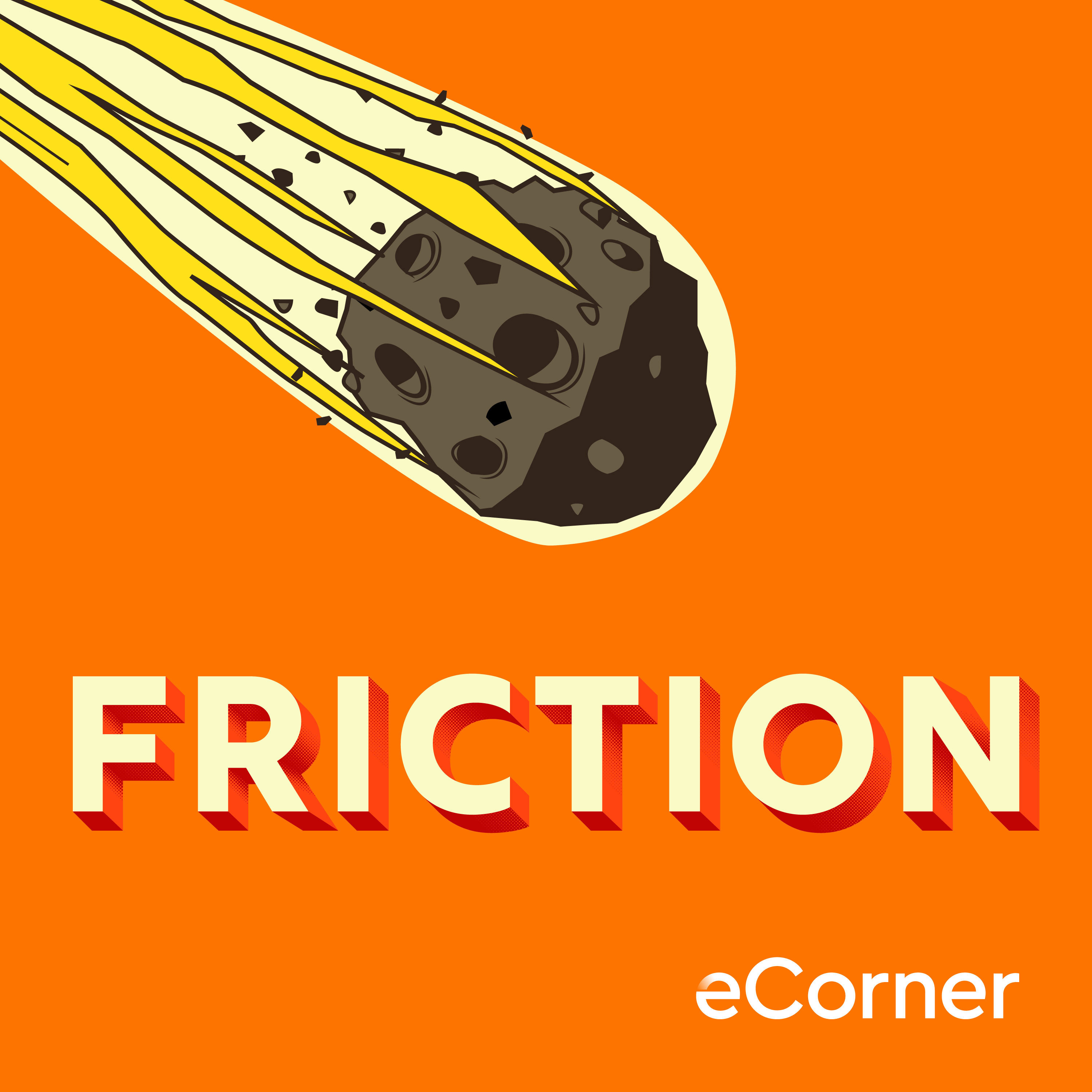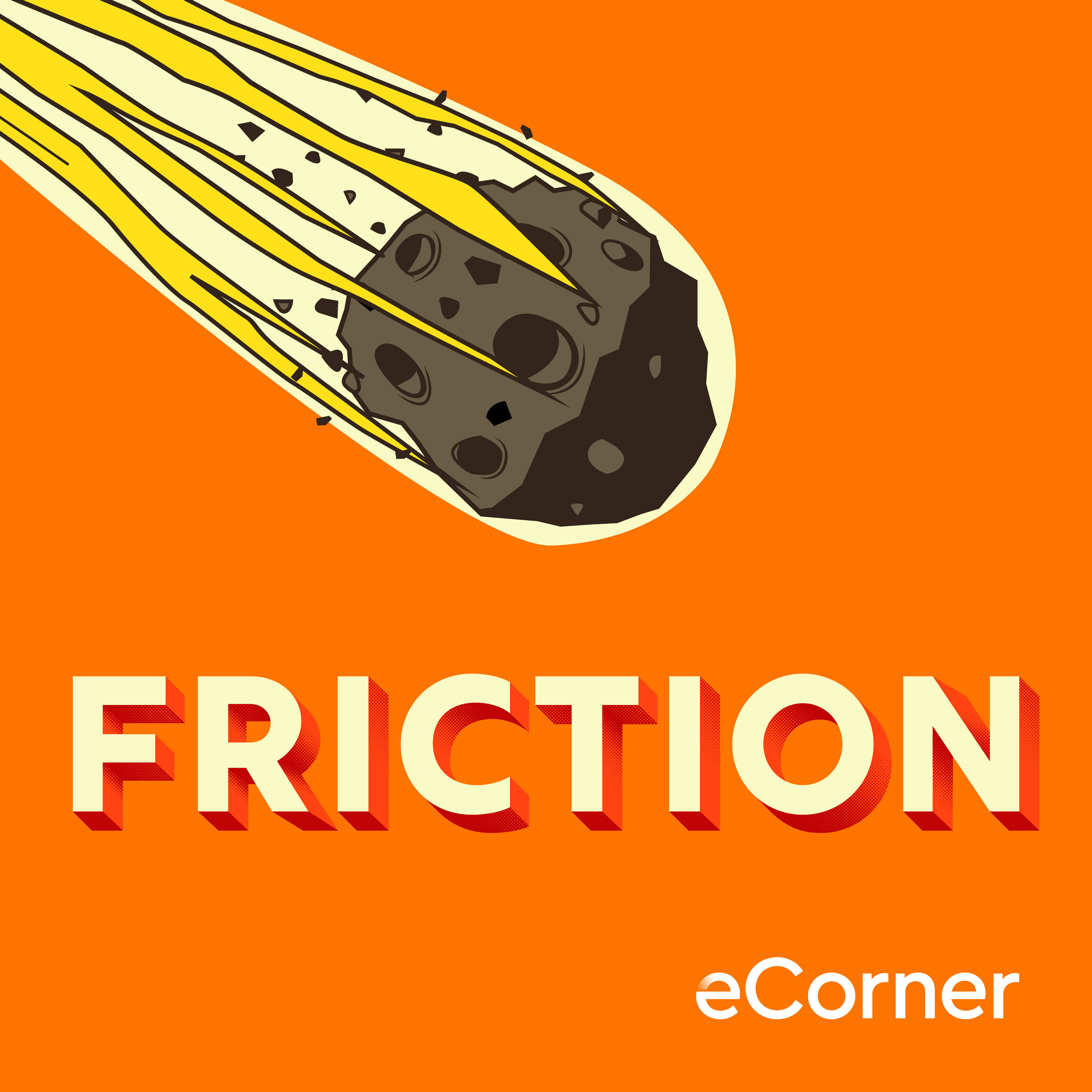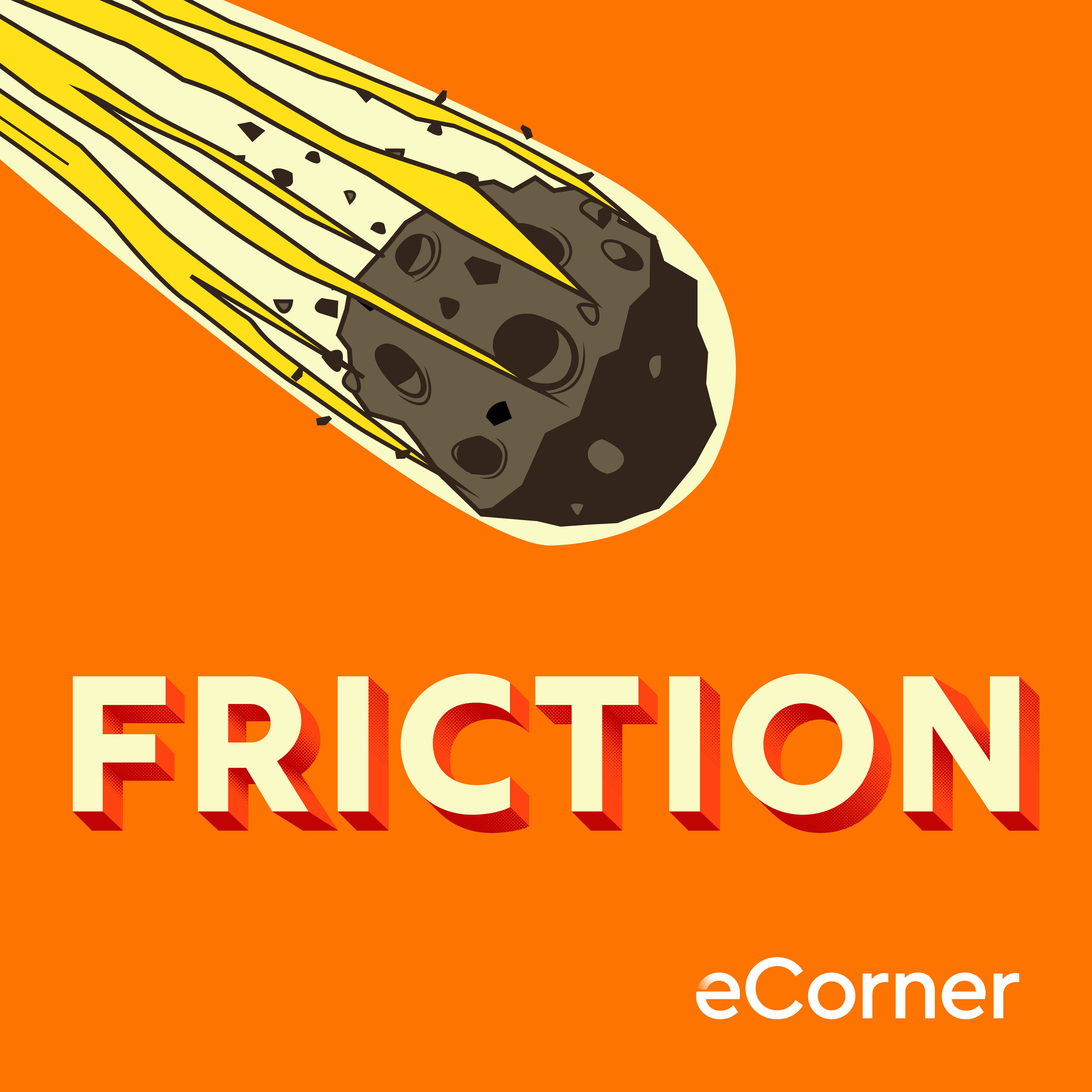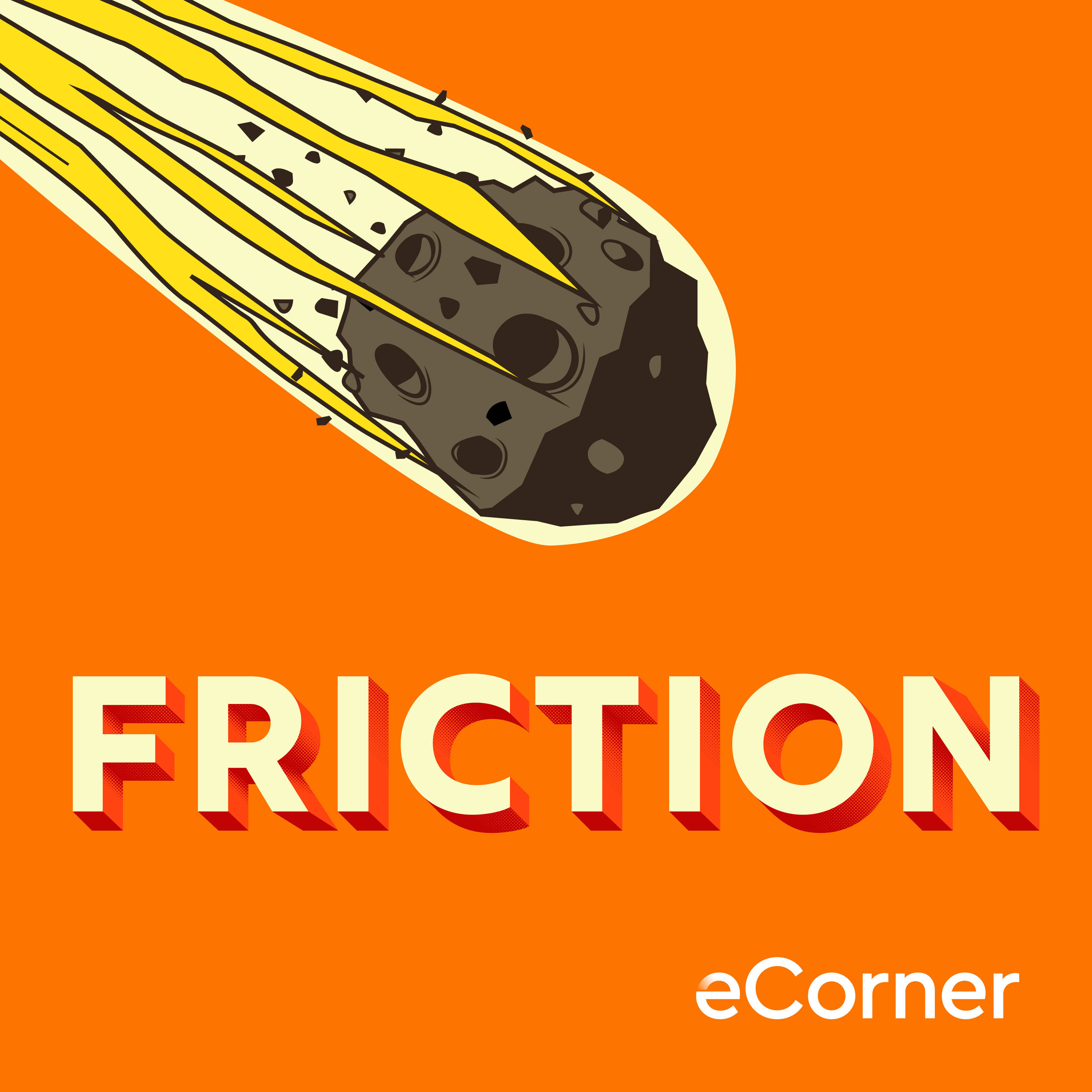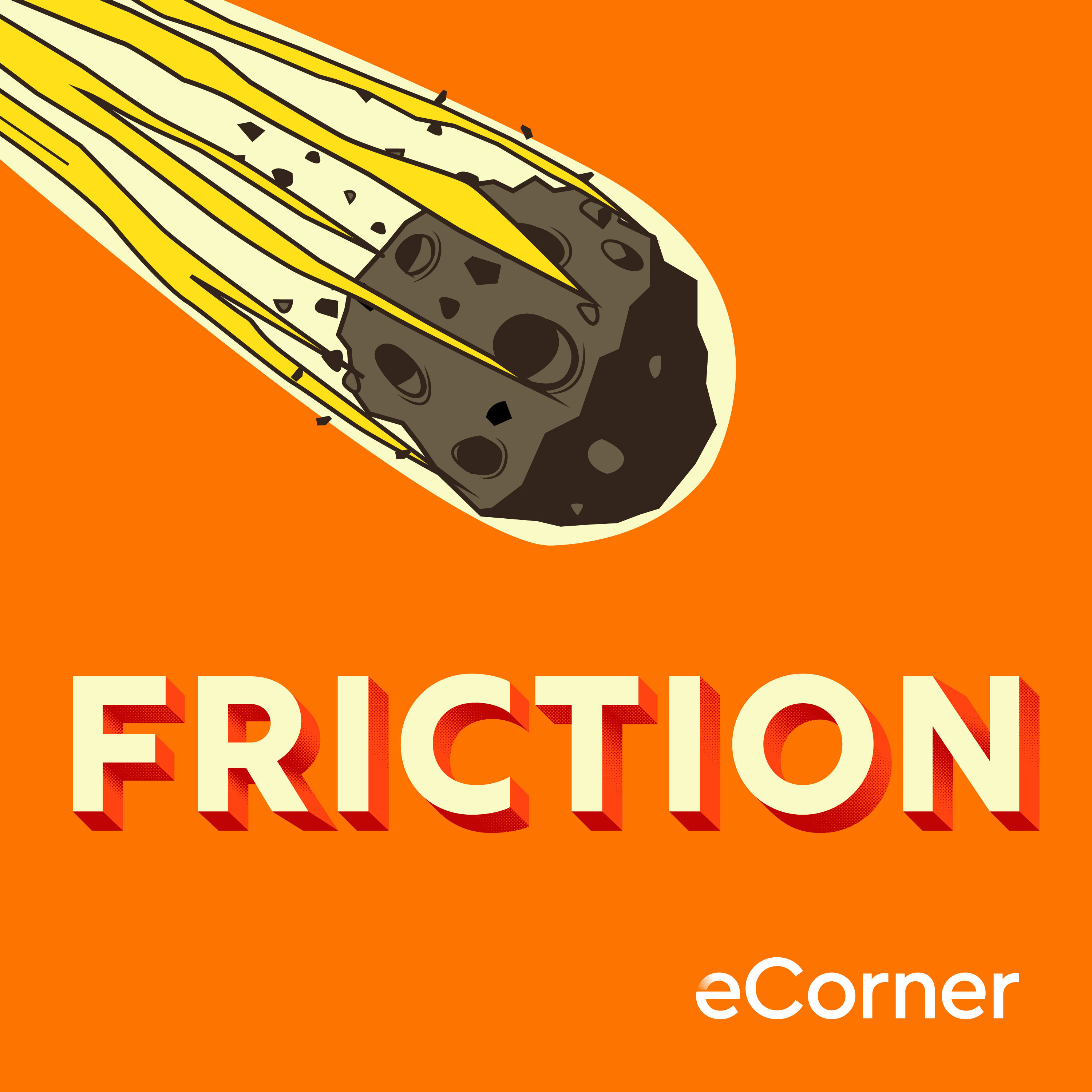Discover FRICTION with Bob Sutton
FRICTION with Bob Sutton

FRICTION with Bob Sutton
Author: Stanford eCorner
Subscribed: 882Played: 2,322Subscribe
Share
© Creative Commons: http://creativecommons.org/licenses/by-nc-nd/2.5/
Description
Part organizational design. Part therapy. Organizational psychologist and Stanford Professor Bob Sutton is back to tackle friction, the phenomenon that frustrates employees, fatigues teams and causes organizations to flounder and fail. Loaded with raw stories of time pressure, courage under ridiculous odds and emotional processing, FRICTION distills research insights and practical tactics to improve the way we work. Listen up as we take you into the friction and velocity of producing made-for-TV movies, scaling up design thinking, leading through crisis and more. Guests include Harvard Business School historian Nancy Koehn, Eric Ries of Lean Startup fame, and restaurateurs Craig and Annie Stoll; as well as academic leaders from Stanford University and beyond. FRICTION is a Stanford eCorner original series.
24 Episodes
Reverse
In the final episode of season two, Stanford Professor Bob Sutton and producer Rachel Julkowski look for signs of hope in and lessons gleaned from our friction-filled world. We can’t fix every messy, frustrating organization overnight, but we can increase predictability for employees and start making it safer for everyone to share information that challenges us to see beyond our roles and experiences.
Too much friction drives you crazy, but too little leaves you adrift. In this episode, Stanford Professor Bob Sutton and Hayagreeva Rao, professor in the Stanford Graduate School of Business and coauthor of Scaling Up Excellence, discuss their quest for the “just right” amount of friction. Sure, you can make structural changes, but you’ll never optimize friction if you don’t understand and deal with what people are feeling.
The temperature is higher and things move faster, but restaurant kitchens aren’t so different from any other workplace—you’ve got egos, stress, and the constant pressure to deliver. In this episode, Craig and Annie Stoll, husband and wife owners of the renowned San Francisco-based Delfina Restaurant Group, talk with Stanford Professor Bob Sutton about the organized chaos that rules restaurant kitchens. What keeps everything from going off the rails, the Stolls explain, is predictability and consistency.
The modern workplace is killing people and no one cares. That’s the sobering conclusion of Jeffrey Pfeffer’s new book "Dying for a Paycheck: How Modern Management Harms Employee Health and Company Performance—and What We Can Do About It." In this episode, Stanford Professor Bob Sutton and Pfeffer, a professor of organizational behavior at the Stanford Graduate School of Business, discuss the toxic workplace practices that are making employees not just miserable but sick. To cure this dangerous state of affairs, Pfeffer prescribes a healthy dose of butting out: companies need to stop micromanaging, and let employees do their work and go home.
Rules get an unfairly bad rap. In this episode, Stanford Engineering Professor Kathleen Eisenhardt, author of Simple Rules: How to Thrive in a Complex World, and Stanford Professor Bob Sutton discuss the virtues of structure and guidelines. As long as your rules are clear and customized to your organization, Eisenhardt says, they won’t get in your way. In fact, the right set of rules—everything from Michael Pollan’s “eat food, not too much, mostly plants” to “no emails on the weekend”—can keep teams focused, productive, and harmonious.
You don’t need as many ideas as you think you do. In this episode, Stanford Professor Bob Sutton and Henning Piezunka, assistant professor at the European Institute of Business Administration (INSEAD), debunk brainstorming myths and talk about the importance of saving time and energy. Piezunka explains that rejecting ideas is a delicate art that can actually deepen relationships—and that saying “no” is much better than saying nothing.
Can you dampen friction in the bureaucracy-laden, ego-filled halls of the United States government? Yes-- you can, says Jennifer Anastasoff. As head of people for the United States Digital Service (USDS), a non-partisan tech group in the federal government created to better deliver government services and improve the lives of people in America, Anastasoff looked for people who cared about the USDS mission more than their own glory. In this episode, Anastasoff and Stanford Professor Bob Sutton talk about the importance of working behind the scenes to build consensus, and valuing results over recognition.
Many companies likes to think they’re practicing design thinking, but most of them are wrong. Sam Yen, former Chief Design Officer of SAP and now Managing Director at JP Morgan Chase & Company, speaks with Stanford Professor Bob Sutton about how the design thinking movement gets lost in translation. He shares how SAP harnessed the energy of customers to combat employee inertia and foot-dragging.
If your stunt coordinator falls asleep in an important meeting, you can expect trouble later, says Hollywood executive producer Sheri Singer. In this episode, Singer and Stanford Professor Bob Sutton talk about the value of worry in the workplace. Singer, executive producer of 37 made-for-TV movies including “Halloweentown,” says that in the fast-paced, budget-crunched world of moviemaking, she’s learned to keep a watchful eye for problem people on her film projects—and to trust her gut about small behaviors that may signal major problems.
To create a culture of innovation inside a large organization, leaders need to help their organizations become bimodal, says Michael Arena, chief talent officer at General Motors and author of Adaptive Space: How GM and other Companies are Disrupting Themselves and Transforming into Agile Organizations. In this episode, Arena and Stanford Professor Bob Sutton talk about ways large organizations can retain the benefits of size while also making room for internal disruption. It all comes down to attracting energizers and challengers-- the networked employees who motivate others to adopt new practices and the deviants who care enough about your mission to shake things up.
When companies get big, they stop innovating. In this episode, Eric Ries, author of The Lean Startup, talks with Stanford Professor Bob Sutton about ways to fight back against the sluggishness of scale. If you really want employees to come up with new ideas, Ries says, workplace posters and glib slogans won’t cut it. You’ve got to measure innovation and reward it, failures and all.
The best leaders cultivate empathy, patience and an awareness of their own vulnerabilities, says Nancy F. Koehn, a historian at the Harvard Business School. She’s the author of Forged in Crisis: The Power of Courageous Leadership in Turbulent Times, about the zigzagging paths of five historical figures, from Abraham Lincoln and Frederick Douglass to environmentalist Rachel Carson. In this episode, Koehn speaks with Stanford Professor Bob Sutton about how transformational leaders slow down and harness their humanity to overcome significant challenges.
Stanford Engineering Professor Bob Sutton is back at it to find the causes and cures for dysfunctional organizational friction. Part organizational design, part therapy, season two of the FRICTION podcast dives into stories of trailblazers who knew when to slow down and think -- and when to speed up and break through the walls of bureaucracy. Buckle up for episodes featuring leadership coach and Harvard Business School historian Nancy Koehn, Lean Startup guru Eric Ries restaurateurs Craig and Annie Stoll and much, much more. New episodes drop May 30th.
For our wrap-up of FRICTION, Stanford Engineering’s Bob Sutton returns to the premise of the podcast - work doesn’t have to suck - and shares his top five takeaways from all the lively and frequently raw discussions he’s had over the summer with fellow experts on management, organizational behavior and other aspects of today’s work environment. A professor of management science and engineering, Sutton signs off by asking listeners for answers to two questions about friction that still haunt him. Here’s your chance to nail a simple test by a tenured Stanford professor and bestselling author.
For our final full episode, Stanford Engineering’s Bob Sutton sits down with Kim Scott, author of the New York Times bestseller “Radical Candor: Be a Kick-Ass Boss Without Losing Your Humanity.” Before a live audience in San Francisco, they discuss how we can all develop the courage to tell co-workers when they can do better, as well as face critical feedback ourselves. Do you pull punches just because you want to be liked, or fear you’ll make someone else angry? Multiply that over an entire organization, and you have the sort of ubiquitous friction that’s devilishly invisible but disastrous overall. As Scott says, the goal is to both care personally and challenge directly: “We totally forget that our humanity is an asset, and we should bring it to bear at work.”
At the end of our live recording of the final FRICTION episode, which you should listen to first, Stanford University business Professor Hayagreeva “Huggy” Rao took to the stage and shared some closing thoughts on podcast host Bob Sutton’s raucous conversation with Kim Scott about her new bestselling book “Radical Candor.” In scholarly, dulcet tones, Rao observes how we can't be brutally honest with one another without the social lubricants of wonder and insight.
Professor DeCelles studies settings that are rife with friction, frustration, and fatigue. In this episode, Stanford Engineering’s Bob Sutton interviews the University of Toronto’s Katy DeCelles about how people deal with the constraints and stresses of prison and airports. Employees in both settings are required to enforce strict rules, which can inflame the often distressed, manipulative, and overbearing people that they care for and oversee. DeCelles explains how prison guards and airline workers do their jobs in ways that protect their own physical and mental health, and at the same time, allow them to maintain order among the people they are paid to serve, protect, and control. The strategies these employees use include a curious blend of empathy and emotional detachment. DeCelles also discusses her research on another kind of pushy workplace character, the “organizational vigilante”– those self-appointed enforcers who take it upon themselves to chastise you for violating some obscure policy or arriving to work five minutes late.
We could all use a little structure — in our lives and, yes, at work (maybe they’re one and the same). The projects we work on get more complex by the day, whether it's the technology, timezones or that sudden call from the school nurse. In this episode, Stanford organizational psychologist Bob Sutton speaks with his colleague Melissa Valentine, an assistant professor of management science and engineering who studies the way we work nowadays: observing the chaos of patient care in hospitals, coders around the world collaborating online, and more. The good news: We still like working with others, and a little hierarchy can help us all stay sane.
When we’re at work, we recognize them instantly. But what type of asshole are they? Are they just a stunted playground bully, or perhaps the dreaded petty tyrant? Stanford Engineering Professor Bob Sutton, author of the forthcoming “The Asshole Survival Guide: How to Deal with People Who Treat You Like Dirt,” and eCorner’s Rachel Julkowski discuss the different kinds of office jerks who make life hell for the rest of us, why they behave so badly, and specific ways to deal with them. Also consider this a gift of self-awareness — because if we’re being honest — we all have the ability to lapse into assholery from time to time.
As kids, it worked every time: Out of sheer greed, you claim the last Oreo by licking it and grossing out all your friends. As adults, it’s your colleague who tells everyone he plans to work on something just so no one else does - halting productivity and progress. In this episode, Stanford Engineering Professor Bob Sutton and his co-conspirator Rebecca Hinds crack open a recently declassified World War II field manual for undercover saboteurs, drawing parallels to the ways businesses undermine themselves and competitors. Whether it’s a pre-meeting before a meeting, or hitting “reply all” in an email, these little acts gunk things up as badly as a fistful of rice in a Humvee’s fuel tank.


